Related Research Articles
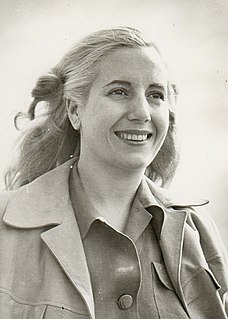
María Eva Duarte de Perón, better known as just Eva Perón or by the nickname Evita, was an Argentine actress, politician, activist, and philanthropist who served as First Lady of Argentina from June 1946 until her death in July 1952, as the wife of Argentine President, Juan Domingo Perón (1895–1974). She was born in poverty in the rural village of Los Toldos, in the Pampas, as the youngest of five children. In 1934, at the age of 15, she moved to the nation's capital of Buenos Aires to pursue a career as a stage, radio, and film actress.
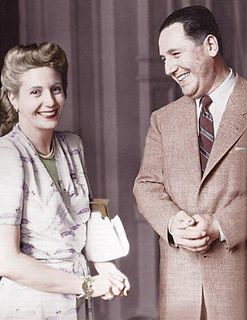
Peronism, also called justicialism, is an Argentine political movement based on the ideas and legacy of Argentine ruler Juan Perón (1895–1974). It has been an influential movement in 20th and 21st century Argentine politics. Since 1946, Peronists won 10 out of the 13 presidential elections in which they have been allowed to run. The main Peronist party is the Justicialist Party. The policies of Peronist presidents have differed greatly, but the general ideology has been described as "a vague blend of nationalism and labourism" or populism.

The Justicialist Party is a major political party in Argentina, and the largest branch within Peronism.

Nacionalismo was a far-right Argentine nationalist movement that around 1910 grew out of the "traditionalist" position, which was based on nostalgia for feudal economic relations and a more "organic" social order. It became a significant force in Argentine politics beginning in the 1930s. Nacionalismo was typically centred upon the support of order, hierarchy, corporatism, militant Catholicism, support of the landed estates, combined with the hatred of liberalism, leftism, Freemasonry, feminism, Jews and foreigners. It denounced liberalism and democracy as the prelude to communism. The movement also supported Irredentism, declaring intentions to annex Uruguay, Paraguay, Chile and some southern and eastern parts of Bolivia.
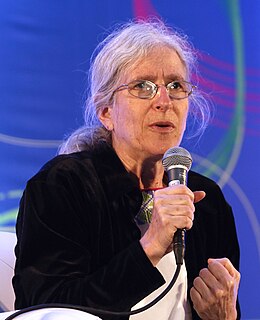
Aviva Chomsky is an American teacher, historian, author, and activist. She is a professor of history and the Coordinator of Latin American, Latino and Caribbean Studies at Salem State University in Massachusetts. She previously taught at Bates College in Maine and was a Research Associate at Harvard University, where she specialized in Caribbean and Latin American history.
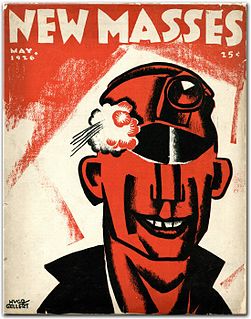
New Masses (1926–1948) was an American Marxist magazine closely associated with the Communist Party USA. It succeeded both The Masses (1912–1917) and The Liberator. New Masses was later merged into Masses & Mainstream (1948–1963). With the coming of the Great Depression in 1929 America became more receptive to ideas from the political Left and New Masses became highly influential in intellectual circles. The magazine has been called “the principal organ of the American cultural left from 1926 onwards."
Trade unions in Argentina have traditionally played a strong role in the politics of the nation. The largest trade union association, the Confederación General del Trabajo has been a force since the 1930s, and approximately 40% of workers in the formal economy are unionized.

The Rebellion of Túpac Amaru II was an uprising of native and mestizo peasants with creole and mestizo support, led by indigenous caciques against the beneficiaries of the Bourbon reforms in the Spanish Viceroyalty of Peru. Other causes included widespread economic downturn and a revival of Inca identity embodied by Túpac Amaru II, a native cacique and the original leader of the rebellion. While Túpac Amaru II was captured and executed in 1781, the rebellion continued for at least another year under other leaders.
The history of Argentina can be divided into four main parts: the pre-Columbian time or early history, the colonial period (1530–1810), the period of nation-building (1810–1880), and the history of modern Argentina.
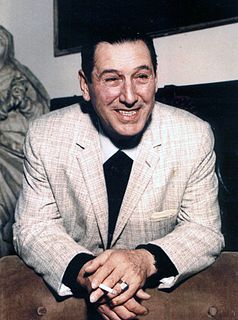
Juan Domingo Perón was an Argentine Army general and politician. After serving in several government positions, including Minister of Labour and Vice President of a military dictatorship, he was elected President of Argentina three times, serving from June 1946 to September 1955, when he was overthrown by the Revolución Libertadora, and then from October 1973 until his death in July 1974.
Robert Jackson Alexander was an American political activist, writer, and academic who spent most of his professional career at Rutgers University. He is best remembered for his pioneering studies on the trade union movement in Latin America and dissident communist political parties, including ground-breaking monographs on the International Communist Right Opposition, Maoism, and the international Trotskyist movement.

The Labour Party was a populist political party in Argentina.
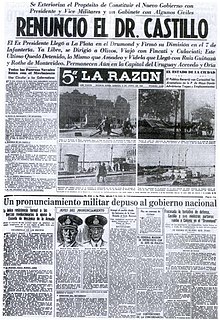
The 1943 Argentine coup d'état, also known as the Revolution of '43, was a coup d'état on 4 June 1943 that ended the government of Ramón Castillo, who had been fraudulently elected to the office of vice-president before succeeding to the presidency in 1942 as part of the period known as the Infamous Decade. The military was opposed to Governor Robustiano Patrón Costas, Castillo's hand-picked successor, a major landowner in Salta Province and a primary stockholder in the sugar industry. The only serious resistance to the military coup came from the Argentine Navy, which confronted the advancing army columns at the Navy Petty-Officers School of Mechanics.
Barbara Weinstein is a professor of Latin American and Caribbean history at New York University. Her research interests include race, gender, labor, and political economy, especially in relation to the making of modern Brazil.

Gran Casino is a 1947 Mexican film. It was written by Mauricio Magdaleno and Edmundo Baez, based on a story by Michel Weber, and directed by Luis Buñuel.

Carolina Muzzilli was an Argentine industrial researcher and social activist of Italian descent. She was the first woman to be made an official of Argentina's National Department of Employment. She did much to improve the working conditions in factories and the work place in Argentina.

Raanan Rein is the Elías Sourasky Professor of Latin American and Spanish History. Since 2005 Rein is the Head of the S. Daniel Abraham Center for International and Regional Studies. He is a member of Argentina's National Academy of History, and former President of the Latin American Jewish Studies Association (LAJSA). The Argentine government awarded him the title of Commander in the Order of the Liberator San Martín for his contribution to Argentine culture. The Spanish government awarded him the title of Commander in the Order of Civil Merit. His current research deals with Jewish Argentines and Peronism, sports and politics in Argentina, Jewish Self-Defense organizations, and Jewish volunteers in the Spanish Civil War.
Daniel J. "Danny" Walkowitz is an American historian who specializes in labor history, urban history, and public history. He holds a joint appointment with the Department of History and the Department of Social and Cultural Analysis at New York University. He co-founded with Paul Mattingly the Archives and Public History graduate program and directed, from 1989 to 2004, the Metropolitan Studies undergraduate program.
Conference on Latin American History, (CLAH), founded in 1926, is the professional organization of Latin American historians affiliated with the American Historical Association. It publishes the journal The Hispanic American Historical Review.

From 1917 to 1919, a large strike movement shook Brazil. It culminated in several general strikes in 1917 and an attempted anarchist uprising in November 1918. The 1917 general strike is considered the first general strike in Brazil, and should mark the beginning of the period called the five red years.
References
- ↑ "Daniel James". John Simon Guggenheim Foundation. 2006. Archived from the original on 2011-11-11. Retrieved 2011-09-14.